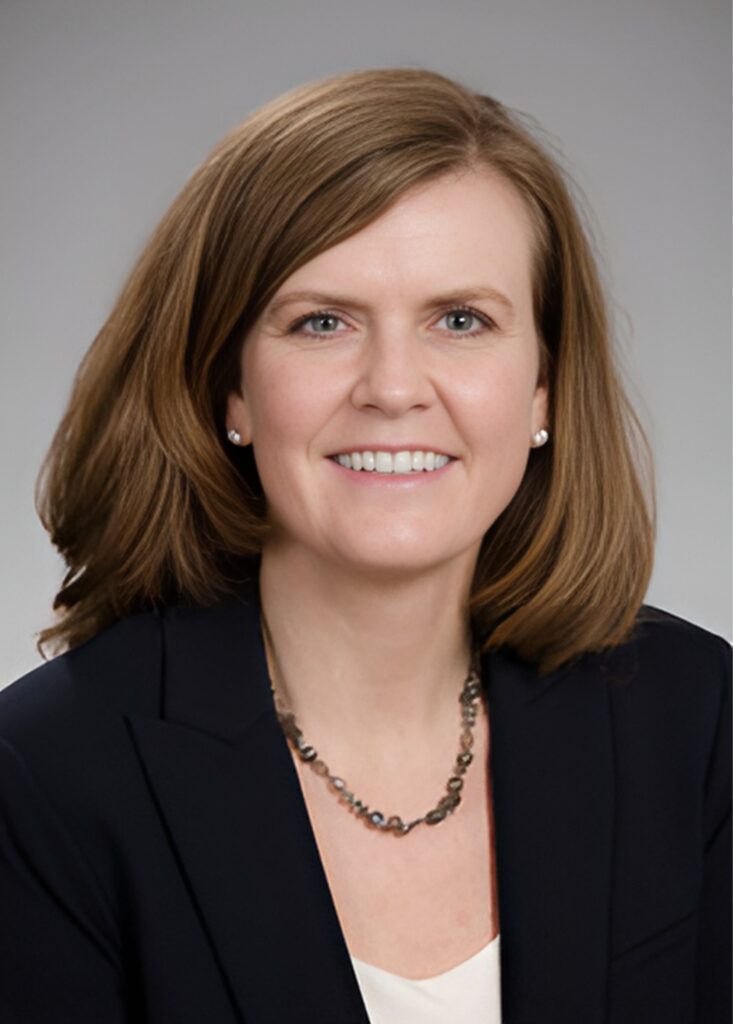
Angelisa M. Paladin, MD
2024–2025 ARRS President
First, I want to thank Dr. Erik Paulson for an incredible year of leadership. It has been such a joy to work with Erik over these many years, and I am honored to have him pass me the ARRS gavel.
Also, I am extremely proud to announce that ARRS is doubling-down on its commitment to providing the best education to members by launching a second journal! Designed to complement AJR, this brand-new journal is going to be image-rich. It’s going to be published bi-monthly, starting in 2025, and it’s going to be called the Roentgen Ray Review, or R3. And I am happy to say that R3’s inaugural Editor in Chief is Dr. John Leyendecker. John welcomes any thoughts on what our members would like to see in this new journal from ARRS.
I’m most excited to discuss the science of happiness, a topic dear to my heart, here in the pages of InPractice. Why is happiness important? Why, or how, do we link happiness with the workplace? It’s something that we should consider often.
Right now, if I ask you to recall a happy memory, many of us will think of things outside of work. Work doesn’t immediately come to mind. I find this incredibly interesting: where is the word “work” derived from? Let’s start there. It’s Latin from “trepaliare,” which means to inflict suffering. I kid you not. You can’t make this up, right? Okay, how we link this to medical care, in particular, is that data show our happiness—our job satisfaction—is the most important factor determining quality of care. We need to care about our team, and we need to take care of ourselves. We have to be grounded, knowing that wellness is critically important in health care. Data have also shown that for people who are happy and satisfied at their jobs, their production is better, and they don’t call in sick. For all of us involved in leadership, we know the cost of staff turnover.
So, how are we doing? Let’s talk about our baseline. There was a U.S. survey that went out to all physicians, and the response was huge because people really do care about this topic. 25% of all physicians reported being happy at work.
Drilling down, how happy are radiologists? In 2022, we ranked 20th of 29 specialties. A whopping 60% of radiologists reported feeling burnt out. The two largest factors contributing to that burnout were long hours and, interestingly, a feeling of lack of respect for their specialty. Another survey went out, and again, 63% of radiologists reported at least one burnout measure. When imaging leaders were polled, 80% recognized this as a significant problem, but only 20% of those same leaders felt that they had adequate mechanisms at their disposal. There’s a trickle-down effect here, too. Everyone working with colleagues, residents, and trainees: if you are not doing well, they will feel it. And if mama ain’t happy, the house isn’t happy.
We can couple these surveys with data from the Association of American Medical Colleges that just came out predicting we’re going to have a shortage of 10,000–35,000 radiologists by 2034. As we all know, COVID intensified this issue, as many radiologists cut back their hours or took early retirement. Then, we have an aging population. In the next decade, 2 out of 5 active physicians will turn 65 years old. If you think about these personnel shortages, this personal dissatisfaction, we need to be talking about wellness initiatives aimed at our happiness.
So, let us talk about it. Personally, when I think about happiness, it conjures up many fun feelings of my family, my dog. About five years ago, though, I was not happy. I was struggling at work and with the meaning of my work. In fact, I reached out to many of you reading this message now. I was going through a transition, and my closest girlfriend at home happened to be a good friend of Arthur C. Brooks, an endowed professor at Harvard’s Kennedy and Business Schools. (Actually, Dr. Brooks teaches the most requested class at Harvard, leading a happiness lab as well, and both are hard to get in to!) My friend said, “I’m going to give you his book. I want you to read it, and then, we have to talk about it.” And it really was life-affirming and life-changing. Moving forward here in InPractice, I will share some of the major principles of being and working happier. One of the biggest is that a lot of us tend to feel like happiness is this destination. ‘I just have to get happier,’ we tell ourselves. But as Dr. Brooks points out, true happiness is a direction—a direction and the steps you take. We may not always be able to find happiness, especially at work, but we can be happier. Stay tuned!